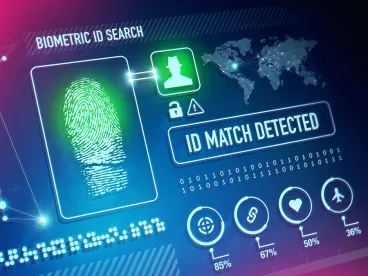In a ruling that may have significant impact on the recent wave of biometric privacy suits, an Illinois state appeals court held that plaintiffs must claim actual harm to be considered an “aggrieved person” covered by Illinois’ Biometric Information Privacy Act (BIPA), in a dispute arising from the alleged unlawful collection of fingerprints from a Six Flags season pass holder. Rosenbach v. Six Flags Entertainment Corp., 2017 IL App (2d) 170317 (Ill. App. Ct. Dec. 21, 2017).
The plaintiff, whose son’s fingerprint was collected by Six Flags after purchasing a season pass for one of its Great America amusement parks, filed suit on behalf of her son and similarly situated class members, against Great America LLC and Six Flags Entertainment Corp. for allegedly violating Illinois’ BIPA by failing to obtain proper written consent or disclosing their plan for the collection, use, storage, or destruction of her son’s biometric information. The plaintiff further claimed that had she known of Six Flags’ collection of fingerprints, she would not have allowed her son to purchase a season pass.
Six Flags argued in a motion to dismiss that the BIPA allows only “aggrieved” individuals to sue for all alleged violations, and that the plaintiff’s son and other similar plaintiffs who had not suffered actual harm have not met the necessary threshold to bring a claim.
After a lower court denied Six Flags’ motion to dismiss, the Illinois’ state appeals court three-judge panel held that in order for a plaintiff to meet the definition of “aggrieved person” under the BIPA, a plaintiff must demonstrate actual harm.
If the Illinois legislature intended to allow for a private cause of action for every technical violation of the act, it could have omitted the word ‘aggrieved’ and stated that every violation was actionable,” the panel ruled. “A determination that a technical violation of the statute is actionable would render the word ‘aggrieved’ superfluous. Therefore, a plaintiff who alleges only a technical violation of the statute without alleging some injury or adverse effect is not an aggrieved person under … the act.
Employment BIPA Class Actions
With over 30 employment class actions filed against employers in Illinois state court since July 2017 claiming BIPA violations for implementation of biometric technology, the Six Flags ruling represents a significant victory. We recently reported on a putative class action filed by employees against their employer, Oak Park Rehabilitation & Nursing Center LLC, alleging that mandatory daily biometric fingerprint scans violate employees’ privacy rights under the BIPA. Similar to the suit against Oak Park, the recent flood of employee class actions allege employer misuse of timekeeping systems that collect fingerprint scans. They claim the employer failed to provide proper notification and obtain written consent or neglected to institute a valid use policy.
Although the Six Flags decision represent a win for employers, plaintiffs will likely continue to attempt alternative legal arguments to claim that an individual is an “aggrieved person” under the BIPA. Accordingly, companies that want to implement technology that uses employee or customer biometric information (for timekeeping, physical security, validating transactions, or other purposes) need to be prepared.
Below are additional resources to help navigate biometric information protection laws:




 />i
/>i

